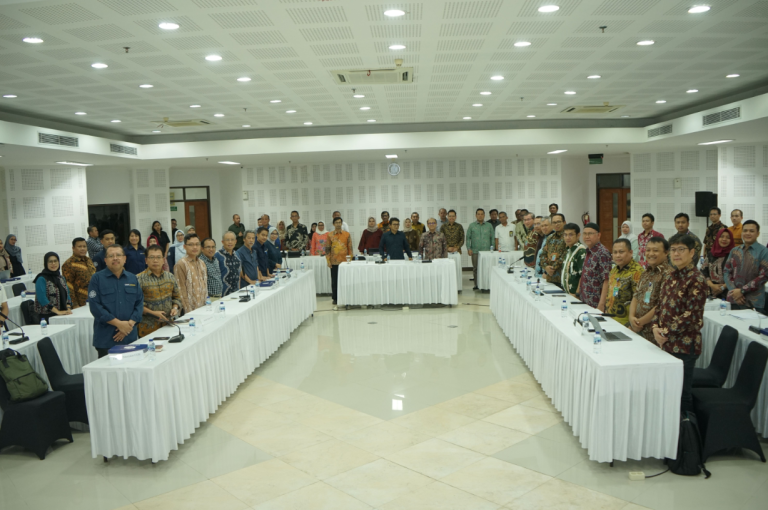
Yogyakarta, January 31st 2024─Currently, the employment landscape in Indonesia is changing due to the demographic bonus which causes the productive age population to be more dominant than the non-productive age population. The government and related parties, such as universities, are important in responding to this. To unravel various challenges and formulate strategies in facing the challenges of the labor market that will occur, the Faculty of Social and Political Sciences of Universitas Gadjah Mada together with the Ministry of Manpower organized a Focus Group Discussion between the Ministry of Manpower and UGM. The FGD with the theme “Employment Strategy and Policy to Support the Competence of Indonesian Human Resources Towards Golden Indonesia 2045” is a follow-up to the visit of the Rector of the UGM to the Ministry of Manpower in early January.
“The employment landscape is experiencing tremendous acceleration, demanding more qualified human resources. That means, universities must prepare an approach model to encourage acceleration and adapt to the changes that occur,” said Arie Sudjito, Lecturer of the Faculty of Social and Political Sciences UGM as well as UGM Vice Rector for Student Affairs, when giving a speech on Wednesday (31/1) at the Auditorium Mandiri of the Faculty of Social and Political Sciences UGM. Arie also mentioned that the efforts made by universities not only aim to align the curriculum with work challenges but also aim for universities to provide input to the government related to policy making at the national level. This is so that the policy also goes hand in hand with what is done in higher education.
The faculties and schools that attended the event were FISIPOL, Faculty of Law, Faculty of Cultural Sciences (FIB), Faculty of Philosophy, Vocational School, Faculty of Agriculture, Faculty of Geography, and Faculty of Animal Husbandry. Representatives from each faculty and school conveyed experiences and recommendations from their perspectives related to labor issues. Wawan Mas’udi, the Dean of the Faculty of Social and Political Sciences UGM, also said that, currently, UGM as a university and the Ministry of Manpower must jointly contribute to ensuring that the younger generation can become an important part of what Wawan calls productive human resources. Wawan also hoped that a framework of cooperation between the university and the Ministry of Manpower could be formed soon as an output of this FGD activity.
